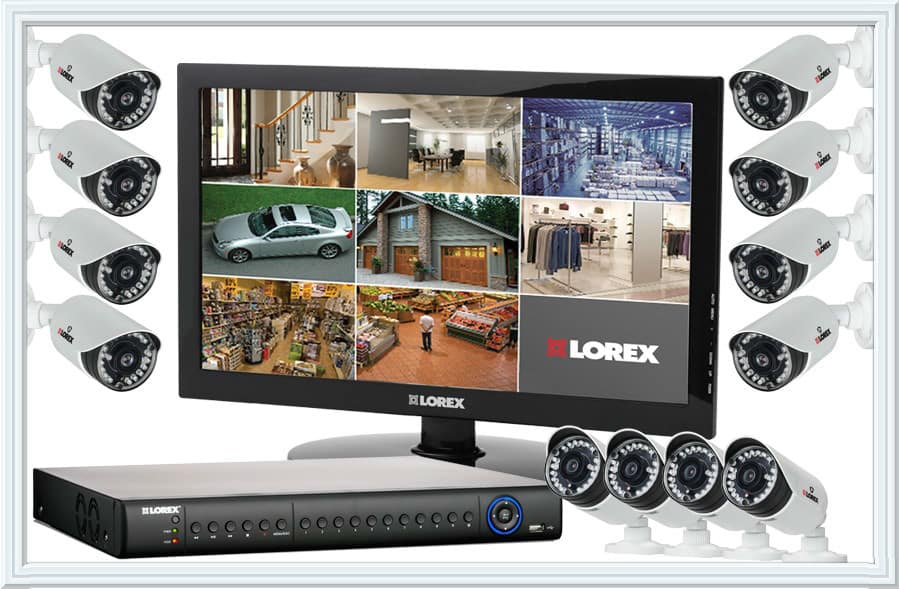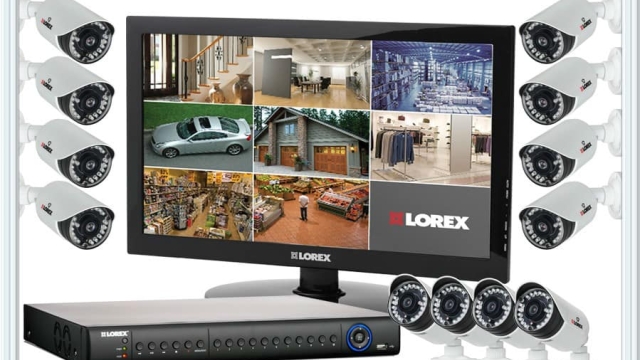
Security cameras have become an essential component of modern-day surveillance systems, playing a pivotal role in safeguarding our surroundings. Acting as vigilant sentinels, these technological marvels tirelessly monitor and record activity, providing an unyielding presence that helps deter potential threats. With their unblinking lenses and extensive coverage, security cameras have become the ever-watchful eyes that ensure our safety. Let’s delve deeper into the world of these guardians from above and explore their indispensable role in today’s security landscape.
The evolution of security cameras has been nothing short of remarkable. From their humble beginnings as bulky, black-and-white devices to the sleek, high-resolution cameras we see today, these surveillance tools have undergone a transformative journey. With advancements in technology, security cameras now boast features such as night vision, pan-tilt-zoom capabilities, and even facial recognition. These advancements have substantially enhanced their effectiveness, allowing them to surveil our environments with an unprecedented level of detail and clarity. As a result, security cameras have become an invaluable asset in combating various forms of crime and contributing to the overall peace of mind of individuals and communities alike.
1. The Evolution of Security Cameras
Security cameras have come a long way since their inception. With technological advancements and increased demand for monitoring and surveillance, these devices have evolved into highly sophisticated tools for ensuring safety and security.
In the early days, security cameras were bulky and limited in their capabilities. They relied on analog technology, making the images they captured grainy and difficult to decipher. However, as digital technology emerged, these cameras began to undergo a transformation.
The introduction of digital security cameras revolutionized the industry. These cameras offered higher image quality, making it easier to identify individuals and analyze footage. Alongside this improvement came advancements in storage capacity, allowing for more extended periods of video retention.
As technology continued to progress, security cameras became more versatile and adaptable. Wireless connectivity enabled cameras to be installed in previously inaccessible areas, increasing the coverage and effectiveness of surveillance systems. Additionally, features such as pan-tilt-zoom capabilities allowed for remote control of camera movements, enhancing the ability to monitor multiple areas simultaneously.
The evolution of security cameras has paved the way for innovative solutions such as facial recognition and motion detection. These advancements have significantly enhanced the effectiveness of surveillance systems, enabling quick identification of potential threats and expedited response times.
In summary, security cameras have evolved from bulky and limited devices to highly advanced tools with improved image quality, wireless connectivity, and innovative features. With these advancements, the eyes of security cameras have become invaluable guardians, playing a crucial role in ensuring safety and security in various settings.
2. The Benefits of Security Cameras
Security cameras offer numerous benefits to individuals and society as a whole. Let’s explore three key advantages they provide.
-
Enhanced Surveillance: Security cameras act as vigilant guardians, constantly monitoring their surroundings. By capturing a video feed of important areas, they help deter potential criminals and provide valuable evidence in the event of any wrongdoing. With security cameras in place, businesses and residences can enjoy an added layer of protection, promoting a safer environment for people and their belongings.
-
Crime Prevention: The presence of security cameras often acts as a powerful deterrent to criminal activity. Knowing that their actions are being observed and recorded, individuals with malicious intent are less likely to engage in illegal behavior. As a result, security cameras contribute to reducing the occurrence of crimes such as theft, vandalism, and other unlawful acts. Their watchful eye helps maintain law and order, fostering a sense of security within communities.
-
Peace of Mind: One of the most significant benefits of security cameras is the peace of mind they bring to people. Whether they are employed in residential properties or public spaces, these cameras provide reassurance and a sense of safety. Individuals can feel more comfortable knowing that the area is under constant surveillance, minimizing the risks of unauthorized access or suspicious activities. This peace of mind allows people to focus on their everyday tasks without worrying about potential security concerns.
In summary, security cameras offer enhanced surveillance, crime prevention, and peace of mind. By acting as the eyes of security, these devices play a vital role in maintaining safety and security in various aspects of life. Keep reading to discover more about the impact and future of security cameras in our society.
3. Privacy Concerns and Ethical Considerations
In addition to enhancing security, it is crucial to acknowledge the privacy concerns and ethical considerations surrounding the use of security cameras. As these devices become more ubiquitous in our society, we must weigh the benefits they offer against the potential impact on individual privacy.
Firstly, the widespread use of security cameras raises questions about the invasion of personal privacy. An extensive network of cameras can capture people’s activities in public spaces, exposing them to constant surveillance. This continuous monitoring can evoke feelings of unease and apprehension, as individuals may feel that their every move is being watched and recorded without their consent.
Secondly, the growing deployment of facial recognition technology with security cameras has triggered ethical debates. The ability to identify and track individuals based on their facial features raises concerns over the misuse of this data. There is a fine line between using this technology for crime prevention and crossing into the realm of mass surveillance, potentially infringing upon civil liberties and fundamental rights.
Finally, there is a legitimate concern about the security of the recorded footage. With the increasing prevalence of hacking incidents, unauthorized access to surveillance systems has become a real threat. If security cameras are compromised, the privacy and safety of the individuals being monitored can be compromised as well.
While security cameras undoubtedly serve a crucial purpose in deterring crime and ensuring public safety, it is vital to address these privacy concerns and ethical considerations. Striking a balance between surveillance and privacy protection is essential to maintaining a society that values both security and individual rights.
